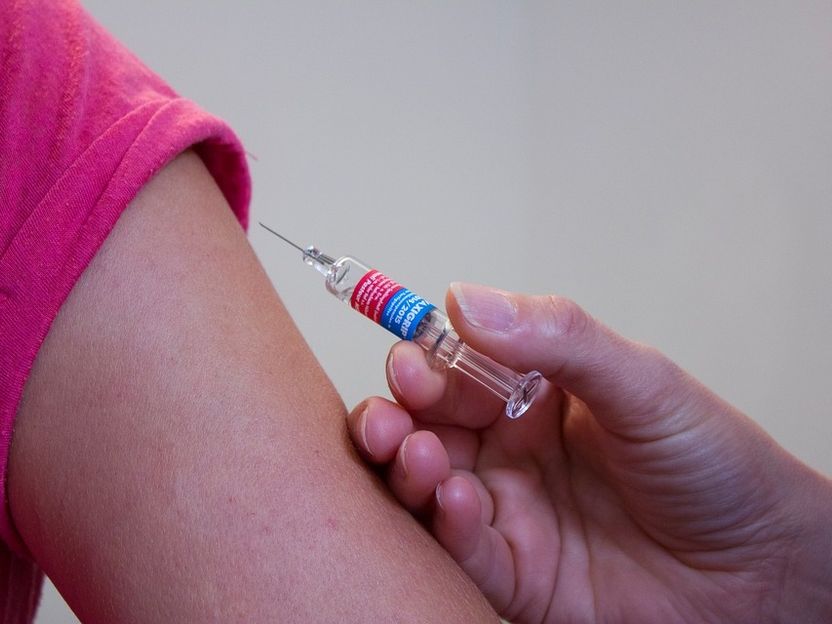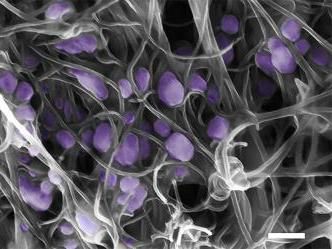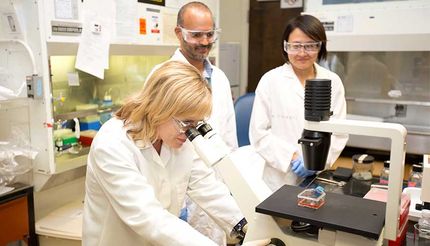Combined HIV and hepatitis C virus vaccination a possibility
A combined vaccination against hepatitis C virus (HCV) and HIV moved a step closer, with the results of a study* presented at The International Liver Congress™ 2016 in Barcelona, Spain today.

dfuhlert, pixabay, CC0
An estimated 2.3 million people globally are co-infected with HIV and HCV.1 HCV is the leading cause of non-AIDS deaths in co-infected individuals.2
The research showed that the 'prime boost' approach is compatible with co-administration of vectors encoding for HIV and HCV antigens (molecules capable of inducing an immune response). In this approach, the immune system is first primed through exposure to non-replicative serologically distinct adenoviral vectors that contain fragments of HCV and HIV viruses. Following this, booster vaccinations are given with the same combination of HCV and HIV fragments, each inserted into an MVA vector, a vaccination virus strain commonly used in clinical trials.
"While we have drugs to treat both HIV and HCV, these are out of reach for many and do not prevent reinfection," said Professor Lucy Dorrell of the University of Oxford, who is the principal investigator of the study. Her study fellow, Professor Ellie Barnes who is leading the development of HCV vaccines at the University of Oxford continues, "knowing that it may be possible to vaccinate a single individual against both diseases opens up huge possibilities for rolling back epidemics of disease and co-infection."
The Phase 1 study enrolled 32 healthy volunteers in three groups. Group one received only HCV investigational vaccines at weeks 0 and 8. The second group received only HIV investigational vaccines following the same dosing schedule. The final group received both HCV and HIV investigational vaccines that were co-administered.
Vaccine priming against HCV and HIV induced immune response in the body, measured by the number of HIV and HCV specific T-cells found in a sample of blood (peak mean of 608.5 and 785 spot forming units per million peripheral blood mononuclear cells [SFU/106PBMC] respectively). These immune responses were increased following boost vaccination (peak mean 4260 SFU/106PBMC for HCV and 3760 SFU/106PBMC for HIV).
Co-administration of HCV and HIV components of the boost did not impair the magnitude or breadth of either HCV or HIV specific T-cell responses compared to each alone. All vaccines were given as an intramuscular injection and both were well tolerated.
"Finding effective vaccinations against the world's biggest killers is a huge and pressing problem," said Professor Laurent Castera, EASL Secretary General. "This study shows for the first time that it is possible to generate simultaneous immune response against diseases HCV and HIV, raising the possibility of a combined vaccination."
Organizations
Other news from the department research and development

Get the life science industry in your inbox
By submitting this form you agree that LUMITOS AG will send you the newsletter(s) selected above by email. Your data will not be passed on to third parties. Your data will be stored and processed in accordance with our data protection regulations. LUMITOS may contact you by email for the purpose of advertising or market and opinion surveys. You can revoke your consent at any time without giving reasons to LUMITOS AG, Ernst-Augustin-Str. 2, 12489 Berlin, Germany or by e-mail at revoke@lumitos.com with effect for the future. In addition, each email contains a link to unsubscribe from the corresponding newsletter.























































